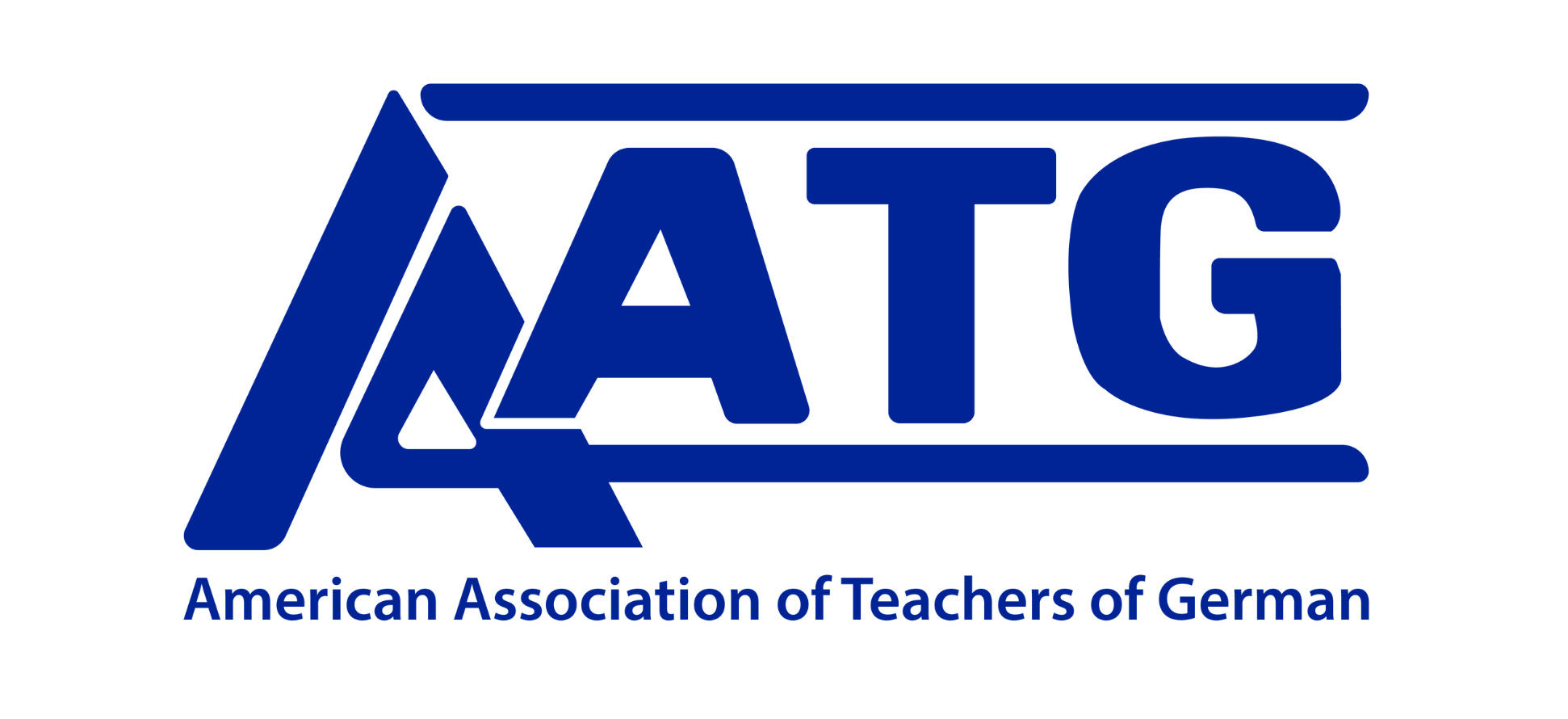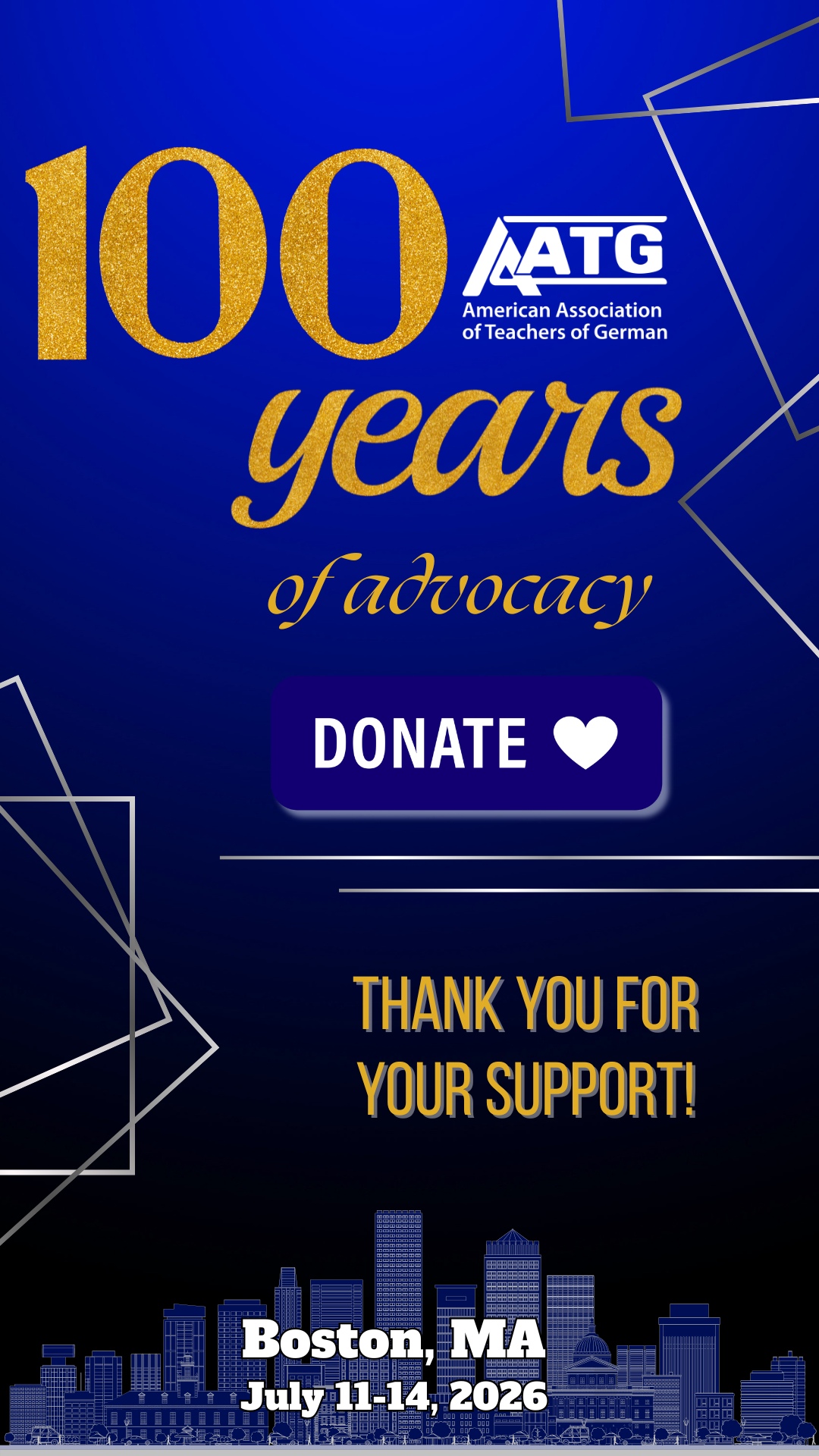Advocacy - Keep Programs Strong
 "The best defense is a good offense"
"The best defense is a good offense"
Tips for keeping a program off the chopping block
Most likely, you're already doing many of these things, but maybe seeing other examples will offer a new perspective. Rather than a checklist, consider this document a menu. Choose something from each category that works for your program right now; next semester try something different. We encourage members to contribute a resource here which we will store in the appropriate folder for all of us to access. We welcome docs, slide shows, personal anecdotes, sample press releases, screenshots of social media posts, etc. -- anything that has worked for you, may work for someone else. Thank you for sharing!
Publicly promote your program
Perhaps one of the most effective ways to ensure that decision-makers value a German program is for them to hear about its successes from others. This means advertising. One tactic is to have your program frequently make headlines via social media, the school paper or the local news.
Keep in mind that you don't need to do this alone. It may be helpful to elect/appoint a (team of) student(s) to act as PR officers of our program or club.
Public Relations - Pre-Collegiate
- Teach student PR officers to use social media and/or write press releases to local papers. Include pictures!
- German club events, GAPP / host German students
- Travel abroad / AATG Study Trip
- National German Exam successes - medals & achievement awards, Study Trip / Concordia Language Villages award
- Goethe-Institut activities / competitions
- Senior academic awards
- An annual Abschlussfeier with families, administrators and special guests
Public Relations - Post-Secondary
- Scholarships, awards, grants
- Students’ travel abroad experiences
- German club activities (especially if it involves any community outreach)
- New courses (especially if they engage in some way with community partners)
- Editorials in local newspapers by students on value of FL learning
- Outreach activities with local middle and high schools, such as tutoring, German Day event, etc.
Partner, Partner, Partner
It is critical to establish partnerships to enhance our programs and also save ourselves time and energy by utilizing resources that are readily available to us.
NB: Never contacted your German consulate before? You’re not alone! Rest assured, they want to hear from German teachers. Be sure to click on the link in this section for tips on how to reach out, whom to contact and what you can ask for. Don’t be shy about connecting with these people. They are sent to the US to support your work.
- AATG national office support
- AATG chapter activities
- Cultivate relationships with administrators / parents / parent group / school board
- Partner with other languages / departments for projects and initiatives
- Partnering with German Officials: German Diplomatic Corps and other US-based German entities
- Fulbright Organization - (e.g. Meet a German program )
- Local German/Austrian/Swiss Social Clubs
- Facebook AATG-Listserv Fans
- Post-secondary schools with German programs
- Local employers at German companies
- AATG national office support
- AATG chapter activities
- Cultivate relationships with administrators / parents / parent group / school board
- Partner with other languages / departments for projects and initiatives
- Partnering with German Officials: German Diplomatic Corps and other US-based German entities
- Local high schools and middle schools
- Area colleges
- Local employers that emphasize WL ability
Make German as Accessible as Possible
Getting students interested in German and retaining those students throughout their study is a linchpin to program success. Make signing up for German as desirable as possible, and make continuing with German barrier-free and schedule-friendly.
Accessibility - Pre-Collegiate
- Work to debunk the myth that German is a “harder” language
- Target your message to address decision-makers: parents of middle school students, high school students, guidance counselors
- Make enrolling in German as “barrier free” as possible
- Identify potential scheduling conflicts (example: Do all students have access to German 1 or upper-level courses?)
Accessibility - Post-Secondary
- Work to debunk the myth that German is a “harder” language
- Make minoring/majoring as “barrier free” as possible
- Think about scheduling possibilities (do your current course slots disincentivize some students?)
- Think through the pros and cons of modality choice (could hybrid enable more students to enroll, would online courses in the summer boost numbers, could an intensive course hook students?)
- Think about counting cross-listed courses and/or coursework in ancillary field
Plan for the future
Impending retirements or leaves of absence often represent a time period when administrations consider chopping a program. Set your program up for success by providing options for a seamless transition to a new German teacher.
- Reach out to local/state colleges to offer your school to student teachers in advance of retirement
- Share your plans with your AATG chapter
- Partner with SPARK to introduce potential future teachers to your program
- Form a German Booster Group - perhaps they could help run the German Club for a new teacher; they also have a vested interest in making sure the program continues
Plan - Post-Secondary
- Partner with SPARK to foster relations with HS populations (which may be potential feeder schools)
- If lines are not offered for replacements in your department, explore possibilities for a joint-hire and/or a cluster hire with similar fields
- Plan leaves of absence and retirements as thoughtfully as possible and be creative about possible replacements for shorter stretches

